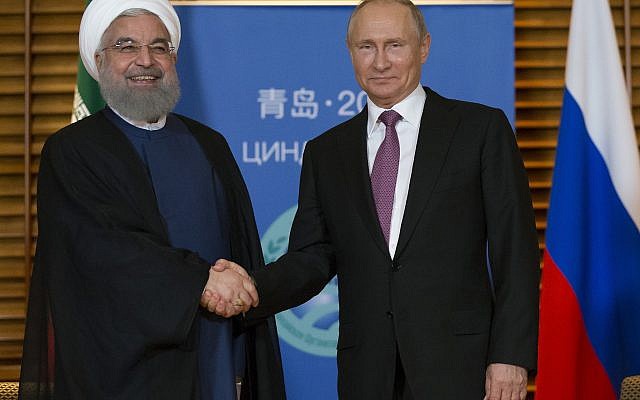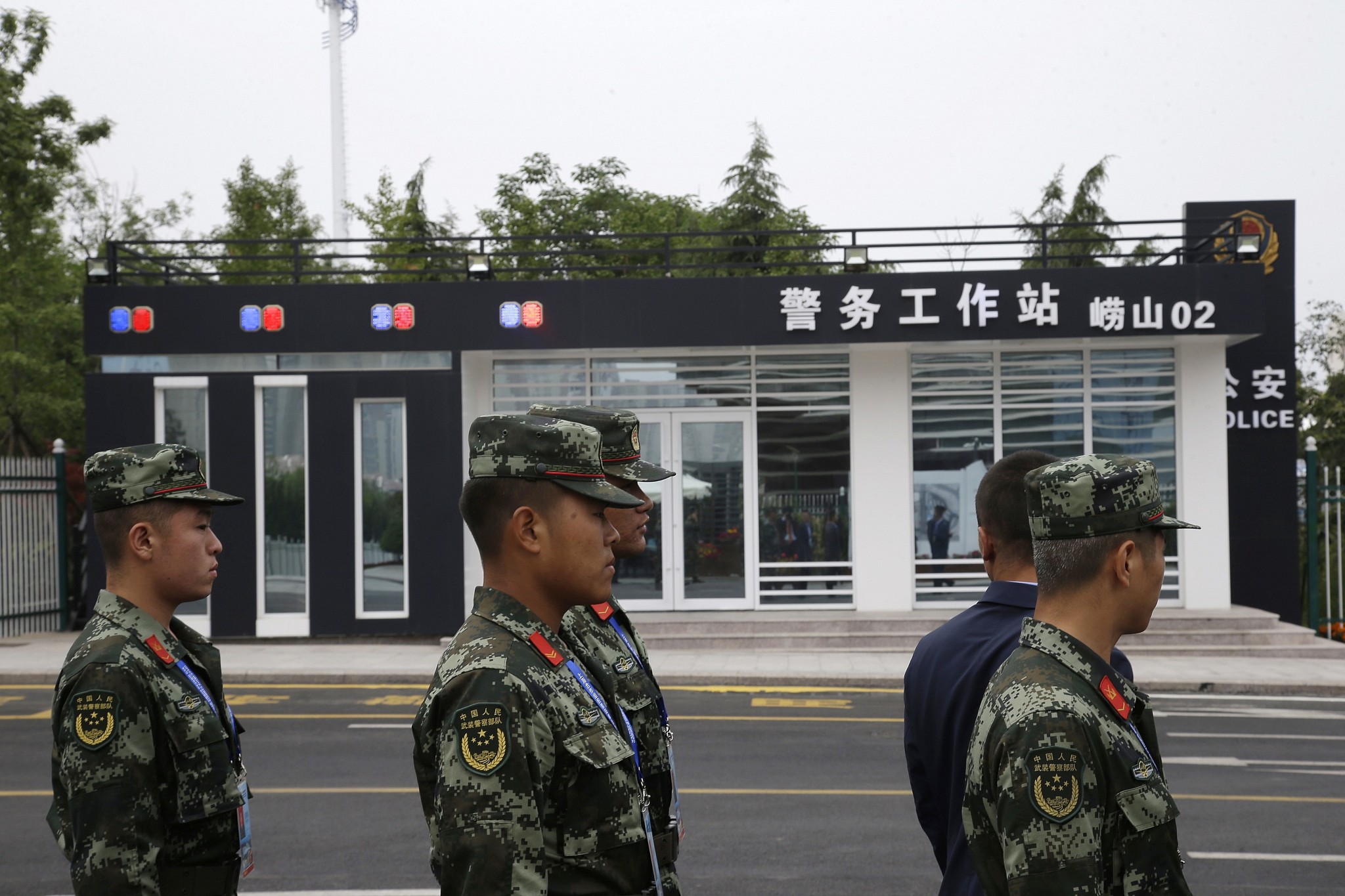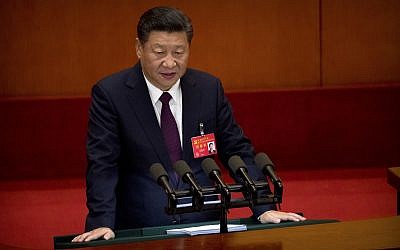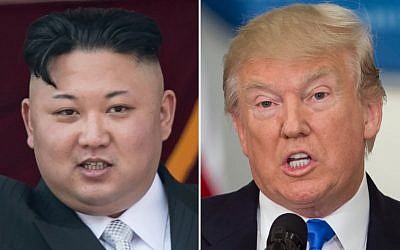Cooperation between Moscow and Tehran in Syria also up for discussion as leaders meet on sidelines of regional cooperation meeting in China

QINGDAO, China — Iranian President Hassan Rouhani said he planned to discuss the situation following the US withdrawal from the Iranian deal with Russian President Vladimir Putin.
Speaking at the start of his Saturday meeting with Putin on the sidelines of the Shanghai Cooperation Organization in Qingdao, China, Rouhani hailed close ties between Russia and Iran.
Iran has an observer status in the SCO, and Putin said that Moscow would support the full-fledged Iranian membership.
Rouhani said that the US exit from the nuclear agreement with Iran warrants an “important and serious discussion between our two countries.”
Rouhani also hailed Russia-Iran cooperation in Syria, saying “our role in the region is quite significant.” Russia and Iran have staunchly backed Syrian President Bashar Assad, helping turn the tide of war in his favor.
Chinese President Xi Jinping will open late Saturday a two-day regional security summit attended by Russia, Iran and other allies confronting rising tensions with the US over trade and Washington’s withdrawal from the Iranian nuclear deal.

Armored vans lined the streets of the coastal city of Qingdao as world leaders arrived Friday for the 18th annual summit of the Shanghai Cooperation Organization, a regional security bloc led by China and Russia. Its member states also include four ex-Soviet Central Asian republics, Pakistan and India.

Authorities emptied an entire oceanside swathe of the city — clearing out shopkeepers, residents and day-trippers to make way for Xi, his Russian counterpart Putin and Iran’s Rouhani.
Pakistani President Mamnoon Hussain and India’s Prime Minister Narendra Modi will also attend the meeting.
The leaders will be addressed by Xi this evening at an opening banquet from 7:45 p.m. (1145 GMT), according to the official schedule, before taking in a fireworks display.
The SCO meeting comes after US President Donald Trump controversially pulled Washington out of the 2015 international pact with Iran that placed limits on its nuclear program in return for easing economic sanctions.
Though not officially on the agenda, analysts say that one key topic of discussion this year may focus on whether Iran will be allowed to ascend from its position as an SCO observer to become a full member state — a development it has sought since 2008 but has been unable to achieve while subject to UN sanctions.
The 2015 nuclear deal lifted that barrier.
Now in the wake of the US withdrawal from the pact, “SCO members may use granting full membership to Iran as a way to demonstrate support for (Tehran) and the nuclear agreement,” said Dawn Murphy, professor of international security studies at the US Air War College.
Speaking Saturday to AFP in Lithuania’s capital Vilnius, senior Iranian official Massoumeh Ebtekar said Iran hoped European powers, Russia and China would confirm their willingness to uphold the deal “as soon as possible because Iran cannot wait forever.”
“We have been a faithful player to this commitment, we’ve done our best, we’ve shown our good intentions. We are facing a very volatile region,” she said.
The tensions over Iran come as another nuclear issue dominates headlines, with Trump and North Korean leader Kim Jong Un preparing for an unprecedented summit in Singapore.

Trade, investment and development cooperation issues will also feature prominently at the SCO, Murphy said, given the climate of “rising anti-globalization and strains on global multilateral economic institutions,” stoked by Trump’s nationalist “America First” policy.
SCO nations may discuss the potential of a joint free trade area, she said, as China also pushes for participation in its Belt and Road global infrastructure project.
“Member states of the SCO are key to the success of the Belt and Road initiative and China’s growing influence as a Eurasian power,” said Murphy.
China may, however, be hindered from gaining robust support for its project at this summit due to India, the only SCO member that does not endorse it, she noted.
Regional security issues will also feature, because terrorism is the most severe security challenge facing the SCO, according to Liao Jinrong, head of the Chinese ministry of public security’s international cooperation department.
“No matter what country has terrorists, we must strengthen our regional cooperation and not allow them to affect regional security,” he told a press conference Friday, adding that the SCO bloc had stopped “hundreds” of terrorist acts.
The summit will boost cooperation on combating terrorism, drug trafficking, organized cross-border crimes and cybersecurity, he said.
As reported by The Times of Israel
